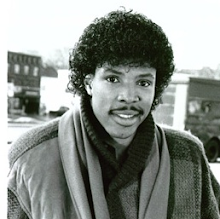I believe that the minds of men. . . will change. . . that all the old pictures
will fade out, and new ones will take their place. . . that what we have in our
heads now is only one of millions of possible seeings; I believe that the man animal got started on the wrong
foot.
—K. Patchen, Albion Moonlight, 298
For J-Y
In Memphis I saw plainly that for all these years I’ve been travelling
with an indifference that now leaves me feeling incredibly ashamed.
I tell myself that I should know a place well before visiting it, and
so I prepare by picking up bits from books here and there. But being interested
in the idea of what other people have found a place to be like has blinded me
from seeing what is actually in front of me. I get hung up on history and
aesthetics and the like, which are arguably only of academic or cocktail-party use.
Because of this I’ve been content to let someone else take care of the suffering
I see.
I had been wanting to visit
Memphis for a long time. Last year, when we moved from Oregon to New Orleans, I
was obviously a few steps closer. Then my friend Clarence came to visit Iphigenia
and me, and so I had a good excuse to make the trip.
I had discarded my
notions of Memphis months before the move, when it seemed as though I’d never get
out of Oregon. By doing this I unwittingly cleared my mind of preconceptions
and so was able to see things in a new light when I arrived. (By the
way, this also kept me from boring the life out of
Clarence with oddities which any schlub can
glean from a quick glance at a map or Wikipedia, but which I like to pass off
as knowledge gained from months of deep study. No doubt Clarence, bless his
heart, is already well aware of this and has, graciously, let it go
uncriticized in earlier instances.)
Two particular
wanderings on this trip affected me: first, a stop in Vicksburg to take in the
impressively steep bluffs, a contrast to pancake-flat New Orleans. In strolling
through the town, however, I quickly forgot about the views because we were stunned by how quiet everything was. Buildings were boarded up left, right and
center; a few workers tinkered with some scaffolding against a time-worn brick
edifice; stray cats paused in the middle of the street to clean themselves; and,
most depressing of all, on South Washington Street, the town’s thoroughfare, a
driver of a horse and carriage dozed off in his seat, looking as though he
hadn’t seen a customer for aeons. I could scarcely imagine a more lonesome
cityscape.
Second, in Memphis, driving
from Sun Studio to the Cooper-Young neighborhood, I took a wrong turn and we
ended up in a run-down residential neighborhood. I spotted a skinny little Jack
Russell with his ribs showing. I usually travel with big-hearted Iphigenia,
who doesn’t subscribe to the saying ‘you can’t save them all.’ Thinking of what
she would do in this situation, I pulled over and tried to grab the little guy.
But he was too wary and, though he wouldn’t run away entirely, kept retreating
from me. It was all I could do to toss him some leftover chocolate chip
cookies. Though I'm not sure whether he ate them, while driving away, all I
could think of was how I hoped he could fill his belly but not get sick from
the trace amount of cacao.
A few minutes later we
made it to Cooper-Young, which was an obvious contrast to the other
neighborhoods we had seen. I felt that this contrast in my surroundings compelled me to consider my actions, that is, enjoying myself when not ten
blocks away others were in need. I couldn’t get the dog out of my head, who, if he
wasn’t sick, was probably roving the overgrown disused lot wondering how cold it
might get that night.
And, for the
anthropocentrically inclined, I also thought of the housing-projects we had
walked by the day before. In one block of flats some kids were playing in a
yard strewn with debris. On the gate there hung a sign that read keep our community clean.
For too long I’ve been
stumbling through this life like a half-witted ape aiming only at making himself
comfortable while those around him have to eat scraps of cookies and play in
trash. On the next trip I take—even if it’s just down the road to the store—if
I see a creature that I can help, I will think of Iphigenia and the Delta trip
with Clarence and do so.
* * *
I have stolen these phrases and ideas from the
following authors. (The actual page numbers fail me, I’m afraid. . .)
- ‘them Memphis notions’—Faulkner, The Sound and the Fury;
- ‘half-witted ape’—Patchen, The Journal of Albion Moonlight; and
- the idea of a mind willfully cleared of
preconceptions—Shunryu Suzuki, Zen Mind,
Beginner’s Mind.

Comments
Post a Comment